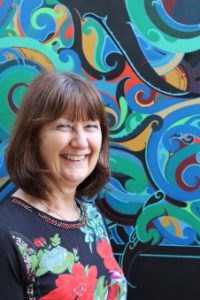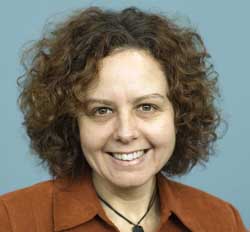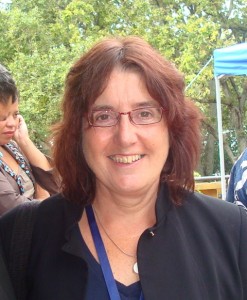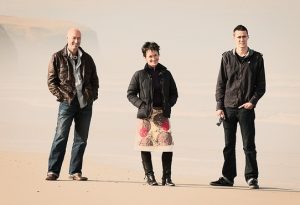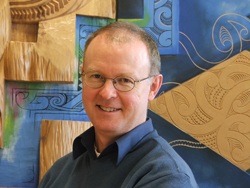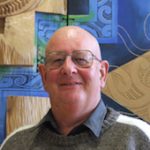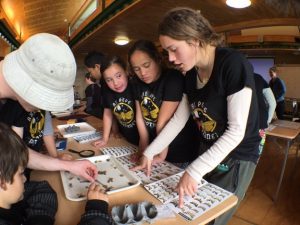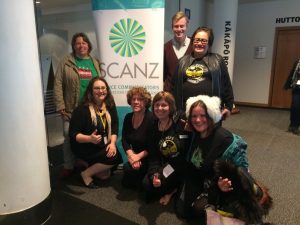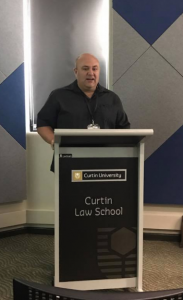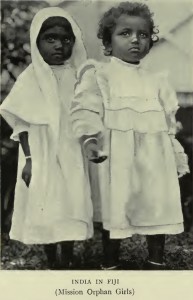Fingers Crossed for Marsden Second Round
Te Pūtea Rangahau a Marsden/Marsden Fund is one of the most prestigious opportunities for externally-funded research grants, and highly competitive. The grants fund three-year research projects, as well as channel some income into the university. The Marsden Fund operates as a two-stage process. Although the quality of all the initial applications (where the research idea is pitched) tends to be very high, most applicants do not get invited to submit a full proposal. In the Humanities Panel just 26.1% got through to the second round, and in Social Sciences it was 22.6%. At the second round successfully gaining a grant then becomes a (roughly) 50/50 chance. So we can see, winning a Marsden is very hard, and getting through to the second round is worth acknowledging and celebrating.
It will now be an anxious time for our Te Tumu staff, Dr Lyn Carter and Dr Erica Newman, involved in preparing their full proposals.
Dr Lyn Carter is part of larger team led by Dr Pedersen Zari of Victoria University, with the project: Empowering Oceania Nature-based Urban Design: Knowledge sharing, Leadership and community Partnering in Climate Change Adaptation. This is a “standard” Marsden application, i.e. submitted by experienced researchers, most often as a team.
Summary: Climate change impacts settlements of Oceania, including Aotearoa, in significant ways. ‘Nature-based solutions’ (NbS) have great potential to address these impacts. Incorporating traditional knowledge into NbS will offer more culturally appropriate and long-term solutions, however links to wellbeing agendas have not been fully explored. This research investigates how well being can be strategically linked to ecologies, and how this can be harnessed to create ecologically resilient ‘Ocean cities’. Research into how the human-nature-climate nexus can be leveraged to enhance the effectiveness of NbS will make a significant contribution to the urban climate adaptation research in Aotearoa, the Pacific, and globally.
Dr Erica Newman project is a “fast-start” application, which are for early career researchers, often working by themselves. Her topic is: Journey Home: Descendants of Māori adoptees search for their tūrangawaewae.
Summary: Māori adoptees who have no knowledge of their Māori heritage pass the unknown to their descendants. Focusing on these descendants, this project will explore; how they identify with their taha Māori, avenues they have taken to connect to their taha Māori, and how they are accepted by their whānau and hapū. I will follow participants on their journey of discovery and will examine hapū membership eligibility. Oral narratives will be the primary base for this project with published and unpublished sources used to support and highlight issues the participants encounter. This will begin a new area of research that will highlight the issues of transracial adoption on identity and well-being for descendants of Māori adoptees in Aotearoa New Zealand. [Advisor: Associate Professor Angela Wanhalla.]
We all have our fingers crossed that Erica and Lyn’s projects make it through.
Rangahau Roundup
Semester 2 has been busy on the research front for Te Tumu staff and postgrads.
Te Tumu is still progressing with Te Kōparapara, a book on Māori culture, history and contemporary society, which is designed as a textbook for MAOR102 as well as for a general audience. Prof Michael Reilly is the main driver of this project, and has been ably assisted by Dr Gianna Leoni. This book, with an array of essays mainly written by Te Tumu staff, is under contract with Auckland University Press and should appear sometime in 2017.
Faculty News
Associate Prof Jenny Bryant-Tokalau has been having a busy Research and Study Leave. She has given two presentations in the USA in the last semester: ‘Food security and other risks in a time of climate change: traditional and contemporary forms of resilience’, to the Department of Anthropology, and ‘Small Island Pacific States: Dealing with Climate Change’ to the Department of Geology at Wheaton College in Massachusetts. In December she presented ‘Working in Context: The Commercial Potential of Customary Pacific Land’ at the Aotearoa New Zealand International Development Studies Network Ninth Biennial Conference ‘Pacific Currents, Global Tides’ Wellington, and ‘Dealing with disasters and social change’ to the Asia Pacific Biocultural Health ‘Big Ideas’ Workshop, in Dunedin, December.
Jenny has also had one chapter in an edited collection appear during this period: ‘Community responses to floods in Fiji: lessons learned’ In Calabrese, John (ed.) Humanitarian Assistance and Disaster Response: Rising to the Challenge. MAP Series, Middle East Institute, Washington. August (2016) issue. Click here to access it. She also has two book reviews published in New Zealand and Pacific Studies November, 2016; and Journal of the Polynesian Society 125 (1), 2016.
Jenny is planning to return to the Solomon Islands to carry out in-depth interviews on small and medium businesses on Kastom land, as well as to finalise book edits for Palgrave MacMillan Anthropology of Disaster Series: What the Pacific Islands can teach New Zealand about Climate Change.
As previous posted, Prof Paul Tapsell spoke at the Indigenous Plenary at the WAC-8 Conference in September. Paul and Associate Prof Merata Kawharu are also part of the large three-year Mauri-Whenua-Ora project within the National Science Challenge Land and Water: Toitū te Whenua, Toiora te Wai. This project is the only fully Māori-led and Māori-integrated research programmes of all NSCs nationally, and is looking at Maori land and water based innovation including: (1) micro economy development “Pa to Plate”, (2) Shared iwi innovation for Taitokerau as a model for other iwi and (3) a regional (Te Hiku) study looking at Maori land suitable use and value chains. Merata also has a forthcoming publication, “Indigenous Entrepreneurship: Cultural Coding and the Transformation of Ngāti Whātua in New Zealand” in the Journal of the Polynesian Society, 125, 4 (2016): 385-408.
Associate Prof Lachy Paterson gave a presentation entitled ‘U.S. Slave “Humor” in New Zealand Newspapers’ at the 109th Annual Meeting of the Pacific Coast Branch of the American Historical Association at Waikoloa, Hawai’i. He is currently writing up this paper, which looked at how imported racist discourses permeated New Zealand’s English-language newspapers. Lachy returned to his ongoing obsession with Māori-language newspapers, with “The New Zealand Government’s Niupepa and their Demise” published in the New Zealand Journal of History, 50, 2 (2016): 44-67.
Together with Associate Prof Angela Wanhalla (Dept of History and Art History), he has also sent off their manuscript “He Reo Wahine: Māori Women’s Voices from the Nineteenth Century” to Auckland University Press, and it should appear sometime in 2017.
Over summer Prof Michael Reilly hopes to write a paper concerning the research relationship between William Wyatt Gill of the London Missionary Society, and Mamae of Ngāti Vara, a church minister, on Mangaia during the 19th century. In the longer run, he wants to begin writing chapters for an introduction to Māori tribal history, drawing from the draft text used as a ‘course reader’ in MAOR 207 Ngā Kōrero Nehe – Tribal Histories. Michael is passionate about this project but acknowledges that it may take several years to finish. He has also completed the final editorial corrections for a paper to be published this December, “Narrative Features and Cultural Motifs in a Cautionary Tradition from Mangaia (Cook Islands)”, in the Journal of the Polynesian Society 125, 4 (2016): 357-384.
Dr Jim Williams has a forthcoming article in the Journal of the Polynesian Society, entitled “Seafood Gardens”. Jim has a busy summer planned, fininishing off an essay for Ethnohistory, entitled “Layers of History” explaining how certain activities are repeated at powerful places, giving rise to notions of circularity of time, but layered, like whakapapa; he will also be giving a presentation in January at the American Historical Association conference in Denver. One of Jim’s students, Katrina Bryant, has just completed her Master of Physiotherapy.
In October newly graduated Dr Gianna Leoni gained a new position based in Te Tumu, that of a Ngā Pae o te Māramatanga postdoctoral fellow, with the research project “Te Ōhanga o te Pīpīwharauroa – Expressing our Economic Aspirations”. Click here for more details.
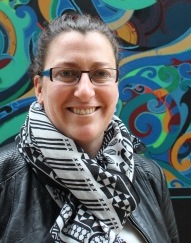 In June, Megan Pōtiki presented on her doctoral research on language loss at Ōtākou, at He Rau Tumu Kōrero IX at Te Rau Aroha Marae in Bluff. This event was run by Te Pouhere Kōrero, the national Māori historians organisation. Megan has also published two journal articles, “The Otago Peninsula: A unique identity” in Shima, 10, 1 (2016): 67-84 [Potiki-Shima-v10n1-3]; and ‘Te Haka Nā Ngā Herehere’ in Te Pouhere Kōrero 8 (2016): 6 –25, and is currently working on another article, “Māori song composition and reclamation of traditional tribal borders” based on a mōteatea she composed for the Te Tumu Kapa Haka group.
In June, Megan Pōtiki presented on her doctoral research on language loss at Ōtākou, at He Rau Tumu Kōrero IX at Te Rau Aroha Marae in Bluff. This event was run by Te Pouhere Kōrero, the national Māori historians organisation. Megan has also published two journal articles, “The Otago Peninsula: A unique identity” in Shima, 10, 1 (2016): 67-84 [Potiki-Shima-v10n1-3]; and ‘Te Haka Nā Ngā Herehere’ in Te Pouhere Kōrero 8 (2016): 6 –25, and is currently working on another article, “Māori song composition and reclamation of traditional tribal borders” based on a mōteatea she composed for the Te Tumu Kapa Haka group.
As part of Māori language week this year Tangiwai Rewi was asked to give a Library research floor talk on Wednesday 13 July on the Ngāruawāhia Turangawaewae regatta, which comes out of her doctoral research and an article last year in the Journal of the Polynesian Society. A display themed around the article was shown in the Hocken Collections for seven weeks as part of Māori language Week. Click here for more details and pictures.
Tangiwai has participated in the Ahi Pepe Resource launch 27 October and Wānanga 26-28 October. She was a collaborator in this project which created an immersion te reo Māori Moths resource depicting the 600+ species endemic to the South Island. Twelve schools were invited to the Wānanga, to participate, learn how to trap, kill and present moths for identification and preservation. Also launched that night were the bilingual and total immersion resource covering the four areas of the South Island.
Tangiwai also attended the SCANZ (Science Communicators Association NZ) conference on 14 November as part of the panel who discussed the resource and preservation of moths.
Tangiwai went north to attend the Te Awamārahi poukai on 24 November. (Poukai are ceremonial gatherings held on Kīngitanga marae.) This was an opportunity to take the photo display back to her marae especially as some of people featured in the photos come from that marae. The photo boards were put on display along with other harakeke resources found along the riverbanks. Needless to say, Tangiwai also vigorously promoted Te Tumu and the University of Otago to all the people who came to view the display.
Postgraduate News
Congratulations to Matangi Schaaf who graduates in December with a PhD; and also to Nikki Walden (Taranaki, Te Āti Awa) and Nurul Sultan with Master of Indigenous Studies degrees. Click here for more details.
Two of our PhD students are submitting in December: John Birnie and Taomi Qiliho-Tapu, and Tāwini White (Ngāi Tahu, Te Rarawa) is making the final amendments to her MA thesis. Rieko Hayakawa‘s PhD thesis ‘Possibility of Telecommunication Universal Service in the Pacific Islands; Case studies of Vanuatu, PEACESAT and USPNet’ has just passed examination. We look forward to these students graduating in the near future.
We have a new PhD student who has just started, Raaniera Te Whata (Ngāpuhi, Ngāti Porou, te Whānau a Apanui), researching communities-based Māori land development in the Bay of Islands. Raaniera comes into doctoral studies after completing an LLB in Auckland and a Master of Indigenous Studies in Te Tumu.
In August Erica Newman who is undertaking PhD research on Fijian Orphanages (1874-1970) presented at the Anthropology and Archaeology Postgraduate Symposium held here in Dunedin.
Matiu Payne (Ngāi Tahu, Ngāti Mutunga), who is researching the impact of government agencies on tikanga whāngai for his doctoral studies, has just been to the Australia New Zealand Law and History Society conference at Curtin University in Perth presenting on his PhD research.
Kelli Te Maihāroa (Waitaha) who is researching Māori peace traditions and their relevance to whānau today, has co-edited an edited collection: H. Devere, K. Te Maihāroa, & J.P. Synott (eds.) Peacebuilding and the Rights of Indigenous Peoples: Experiences and Strategies for the 21st Century, (Springer: Cham, Switzerland, 2016), which includes two co-written and one sole-authored articles by Kelli. She also has an article forthcoming, “Whanaungatanga: Relationships in a One Day Te Reo Māori School of Excellence” in Theobald, M. (Ed.) Friendships in Multilingual Settings (Sociological Studies of Children and Youth, Vol 21 (2016)). Emerald. Kelli, who is a lecturer in the College of Education, also presented at the Teacher Education Forum of Aotearoa New Zealand, in June/July in Dunedin, and at International Indigenous Research Conference in November in Auckland.
Te Tumu Seminar: Guardianship in Early Colonial Fiji
Te Tumu PhD student Erica Newman will be presenting the research presentation, Guardianship in Early Colonial Fiji, on 12 November. Please note that the venue and time have changed to previously advertised. It will now be 3.30-4.30 pm in R3S10 (3rd floor, Te Tumu building).
Abstract: Fiji became a British Colony in 1874 and within five years the Indian Indentured Labour Scheme was introduced to provide workers for the European owned plantations. Care of any orphaned children from these plantations was the responsibility of Colonial Office bureaucrats who applied the western systems of guardianship and adoption that they used throughout the Empire.This seminar will examine five examples of Colonial Office correspondence negotiating the approval of guardianship of children, between the years of 1889 to 1900. A study of these files reveals the circumstances of the child, those who were approved guardianship, and why they sought to become a guardian.

